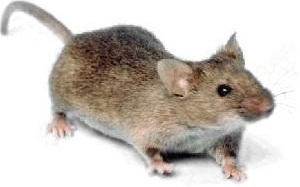Approximately 100 mice were killed because of a clerical error at the Medical School on Tuesday, according to the Harvard University Police Department (HUPD).
The mice were part of an experiment that belonged to a Medical School researcher who has the same name as a second researcher.
A lab technician confused the names on an order and killed the wrong mice.
The mice were in an experiment being performed in the Alpert Building.
Don Gibbins, director of communications for the Medical School, declined to release the names of the researcher and technician, citing their privacy.
"It was a human error," Gibbins said.
Gibbins said the event was an insignificant mistake, calling it "just a bunch of bloody boring book work."
"There are millions of mice in the labs and a few of the wrong ones were destroyed," Gibbins said.
According to Gibbins, the incident is unprecedented and the Medical School will make some changes to prevent this type of incident occurring again.
"Procedures are being put in place to prevent future accidents," said Joe Wrinn, a University spokesperson.
Gibbons said that these changes have not yet been confirmed, saying any new policy would be the responsibility of Associate Professor of Surgery Arthur Lage, who is director of animal resources.
Lage did not return numerous phone calls yesterday to his office and home.
News of the incident was first published as an entry in a police blotter that reported the "mass destruction of 100 lab mice."
Lieutenant Charles A. Schwab of the HUPD said that the entry should have indicated that the killing was accidental and will be changed.
"[The report] is being changed from malicious destruction to property damage," said Police Department spokesperson Peggy McNamara. "[The killing] was a clerical accident and that's all it was," she said, adding that there will be no police investigation.
Read more in News
Oscar Nominee Brings Animation Experience to HarvardRecommended Articles
-
Beth Israel Suffers Potential $52 Million LossBeth Israel Deaconess Medical Center, one of the main Harvard Medical School (HMS) teaching hospitals, reported unaudited operating losses of
-
University CalendarTuesday, May 2. **MORNING PRAYERS. Professor Ralph Barton Perry. Appleton Chapel, 8.45 A. M. The University preacher may be found
-
 Harvard Scientists Reverse Aging Symptoms in Mice
Harvard Scientists Reverse Aging Symptoms in Mice -
Harvard Scientists Reverse Aging in MiceResearchers at Harvard Medical School have reversed the aging process in mice and hope to apply this research to combat the symptoms of human aging.
-
Artists Talk and Hawk Their Wares at Alternative Comics MeccaFor the second year in a row, MICE has attracted independent artists, graphic novelists, and writers hoping to showcase and sell their work.
-
Neuronal Transplants Help Rebuild Diseased BrainsScientists from Harvard University, Harvard Medical School, Massachusetts General Hospital, and Beth Israel Deaconess Medical Center successfully rebuilt diseased brain circuitry in mice by transplanting new neurons. The research, which was published in the November 25 issue of “Science,” indicates that the right type of neuron could successfully integrate and partially restore functionality to areas of the brain that naturally do not regenerate neurons themselves.













